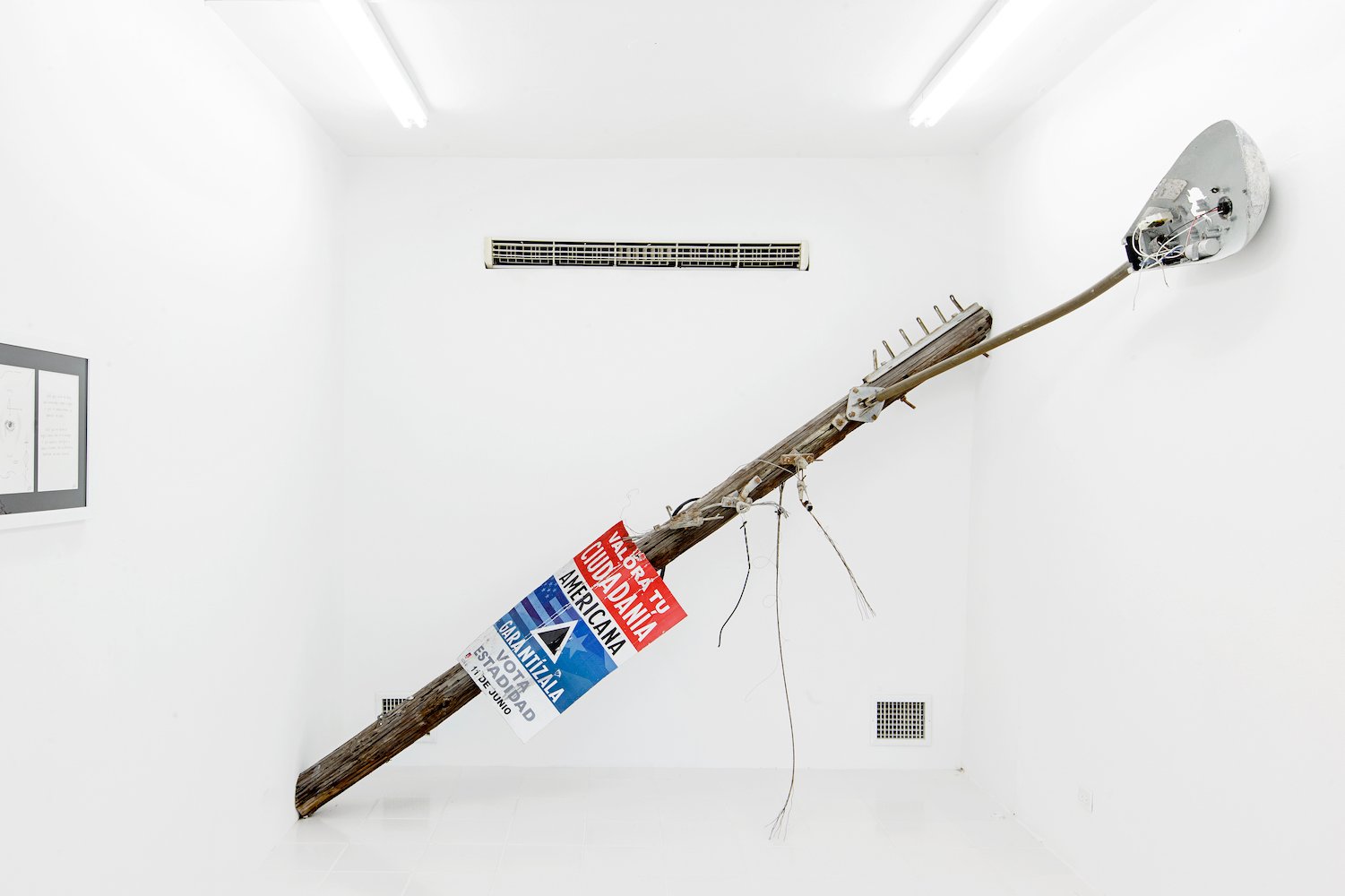
The Whitney Museum of American Art will mark the five-year anniversary of Hurricane Maria with the first major exhibition of Puerto Rican art to be organized at a U.S. museum in five decades.
The exhibition, titled “No existe un mundo poshuracán: Puerto Rican Art in the wake of Hurricane Maria,” will bring together an intergenerational group of more than 15 artists based in Puerto Rico and across the diaspora, more than half of which identify as women, trans, and nonbinary. Their contributions, all created since the storm hit in September 20, 2017, “seek to analyze the cracks left by the storm in the very structure of Puerto Rico’s politics, culture, and society,” according to an announcement from the museum.
Marcela Guerrero, the Whitney’s curator who organized the show along with current and former museum fellows Angelica Arbelaez and Sofía Silva, said in an email to Artnet News that the exhibition would not be another celebration of a community’s resilience in the face of tragedy.
“‘Resilience’ is a word that has been used uncritically in the context of post-Maria,” the curator said. “As scholar Marisol Lebrón has said, resilience abdicates the state of responsibility. Efforts to build a Puerto Rico beyond the constraints imposed by its colonial design have always existed and this, perhaps, is one of its most acute and visible moments.”
Gamaliel Rodríguez, Collapsed Soul (2020-21). Courtesy of the artist and Nathalie Karg Gallery NYC. © 2021 Gamaliel Rodríguez. Photo: Gamaliel Rodríguez.
The exhibition and its catalogue, Guerrero went on, “are examples of this coalescing of voices of artists and thinkers who share an interest in exposing this dire moment in Puerto Rican history, yet offering an alternative in how to see things and how to resist simplistic understandings of what is a very complex political and social reality.”
Studies have estimated that between 3,000 and 4,645 Puerto Ricans died as a result of Hurricane Maria in 2017—an appalling figure that experts say has as much to do with the severity of the Category 5 storm as it does with the lack of state and federal resources granted to the island territory both before and after the catastrophe. (To many, the image of former President Trump throwing paper towels to Puerto Ricans epitomized the negligence.)
Sofía Gallisá Muriente, Celaje (2020). Courtesy of the artist. © 2020 Sofía Gallisá Muriente.
The exhibition checklist is still being tweaked, Guerrero said, but the show will include paintings, prints, performances, and other artworks. And it’s not just the hurricane that it’ll address. Also on the table are other events that have altered the island territory in the years since, including the 2019 ousting of governor Ricardo Rosselló and the pandemic.
“Hurricane Maria left an indelible mark on the history of Puerto Rico,” Guerrero said. “With the hindsight of five years since that fateful event, we know that Maria’s effects cannot be reduced to the storm itself but rather unfold across the events that preceded and followed September 20. The arts community understands the nuances of this reality, and through their work can at once denounce the policies of disinvestment in the lives of Puerto Ricans while also communicating a message of resistance.”
“No existe un mundo poshuracán: Puerto Rican Art in the wake of Hurricane Maria” is set to take place November 23, 2022–April 23, 2023 at the Whitney Museum of American Art in New York.